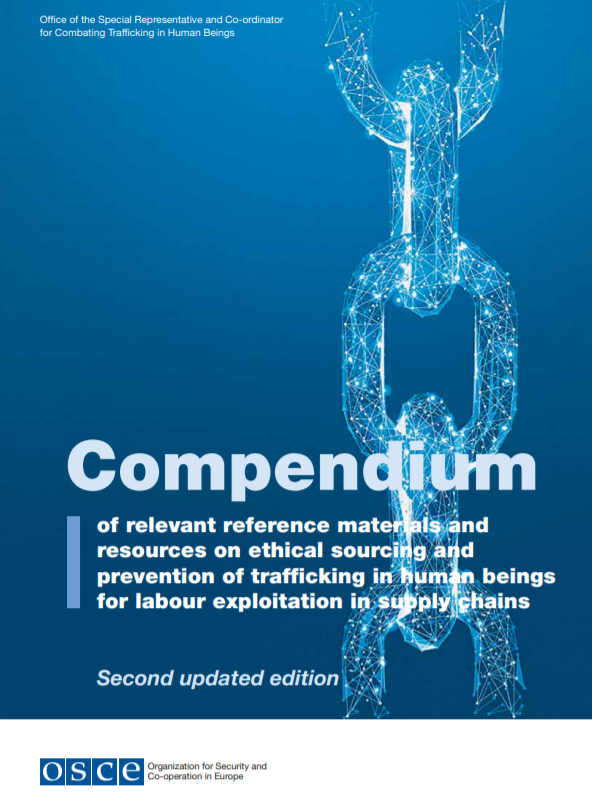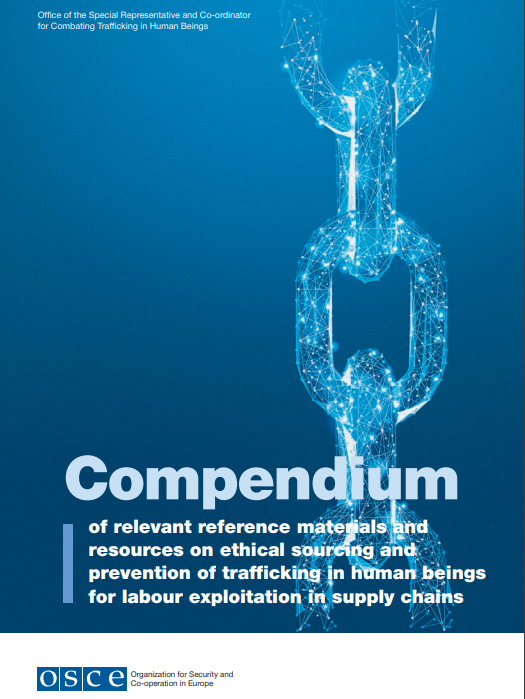The objective of the Compendium of Resources is to take stock of the existing legislation, policies, guidelines, recommendations, reports, studies, and other types of initiatives developed to better understand and respond to the global problem of trafficking in human beings through its prevention in supply chains. The resources included in the Compendium do not represent by any means an exhaustive list and are only intended to illustrate the initiatives identified by the OSCE Office of the Special Representative and Co-ordinator for Combating Trafficking in Human Beings during the development of this project. The Compendium is intended for the use by government officials involved in policy making, as well as businesses and other stakeholders interested to learn from current practices in order to further enhance their own measures on ethical sourcing and the prevention of human trafficking in supply chains.


